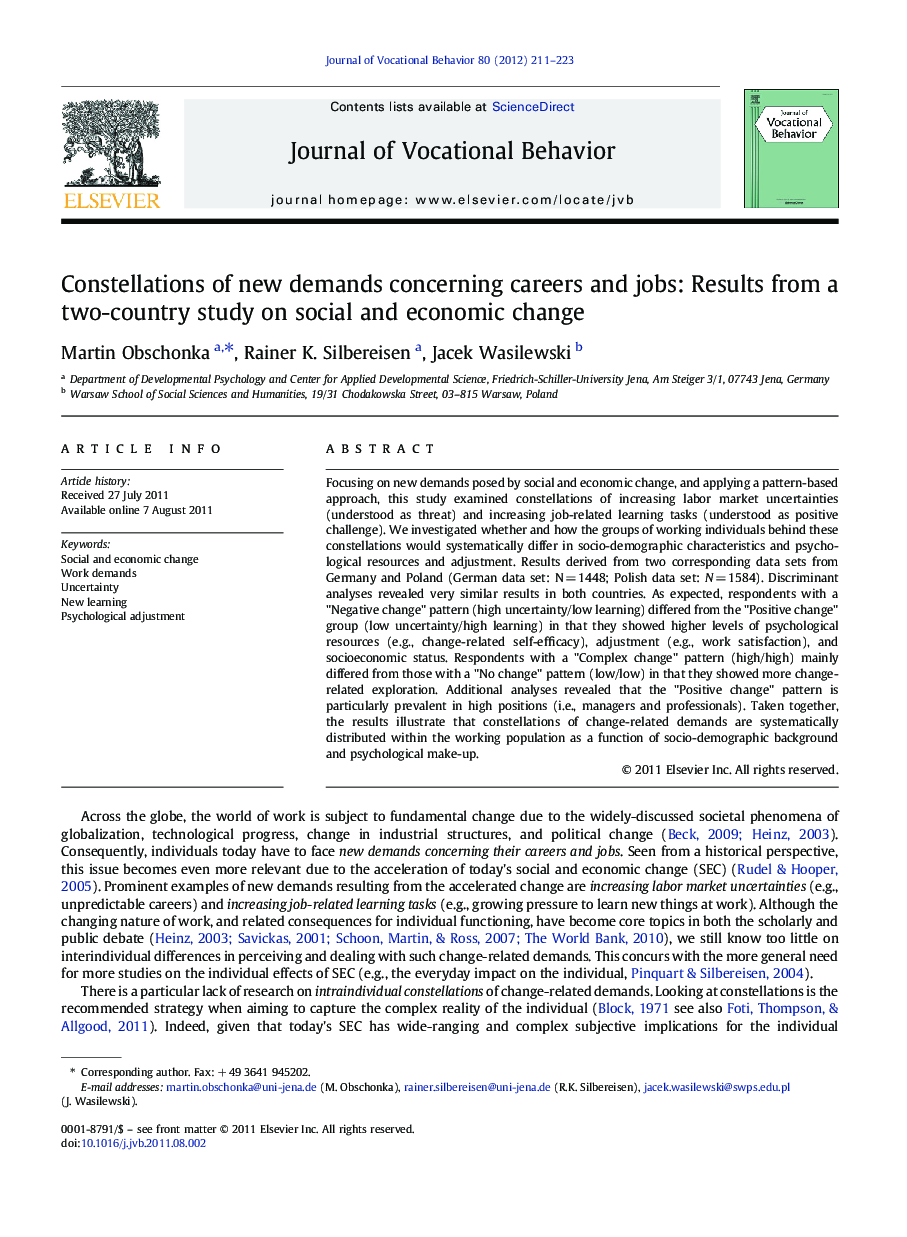| Article ID | Journal | Published Year | Pages | File Type |
|---|---|---|---|---|
| 887118 | Journal of Vocational Behavior | 2012 | 13 Pages |
Focusing on new demands posed by social and economic change, and applying a pattern-based approach, this study examined constellations of increasing labor market uncertainties (understood as threat) and increasing job-related learning tasks (understood as positive challenge). We investigated whether and how the groups of working individuals behind these constellations would systematically differ in socio-demographic characteristics and psychological resources and adjustment. Results derived from two corresponding data sets from Germany and Poland (German data set: N = 1448; Polish data set: N = 1584). Discriminant analyses revealed very similar results in both countries. As expected, respondents with a "Negative change" pattern (high uncertainty/low learning) differed from the "Positive change" group (low uncertainty/high learning) in that they showed higher levels of psychological resources (e.g., change-related self-efficacy), adjustment (e.g., work satisfaction), and socioeconomic status. Respondents with a "Complex change" pattern (high/high) mainly differed from those with a "No change" pattern (low/low) in that they showed more change-related exploration. Additional analyses revealed that the "Positive change" pattern is particularly prevalent in high positions (i.e., managers and professionals). Taken together, the results illustrate that constellations of change-related demands are systematically distributed within the working population as a function of socio-demographic background and psychological make-up.
► Social and economic change results in different constellations of new work-related demands. ► Demands can be positive (job-related learning tasks) and negative (labor market uncertainties). ► Demand constellations depend on position in society, job characteristics, and psychological make-up. ► The privileged experience positive change (low uncertainty, high new learning). ► The least-privileged experience negative change (high uncertainty, low new learning).
